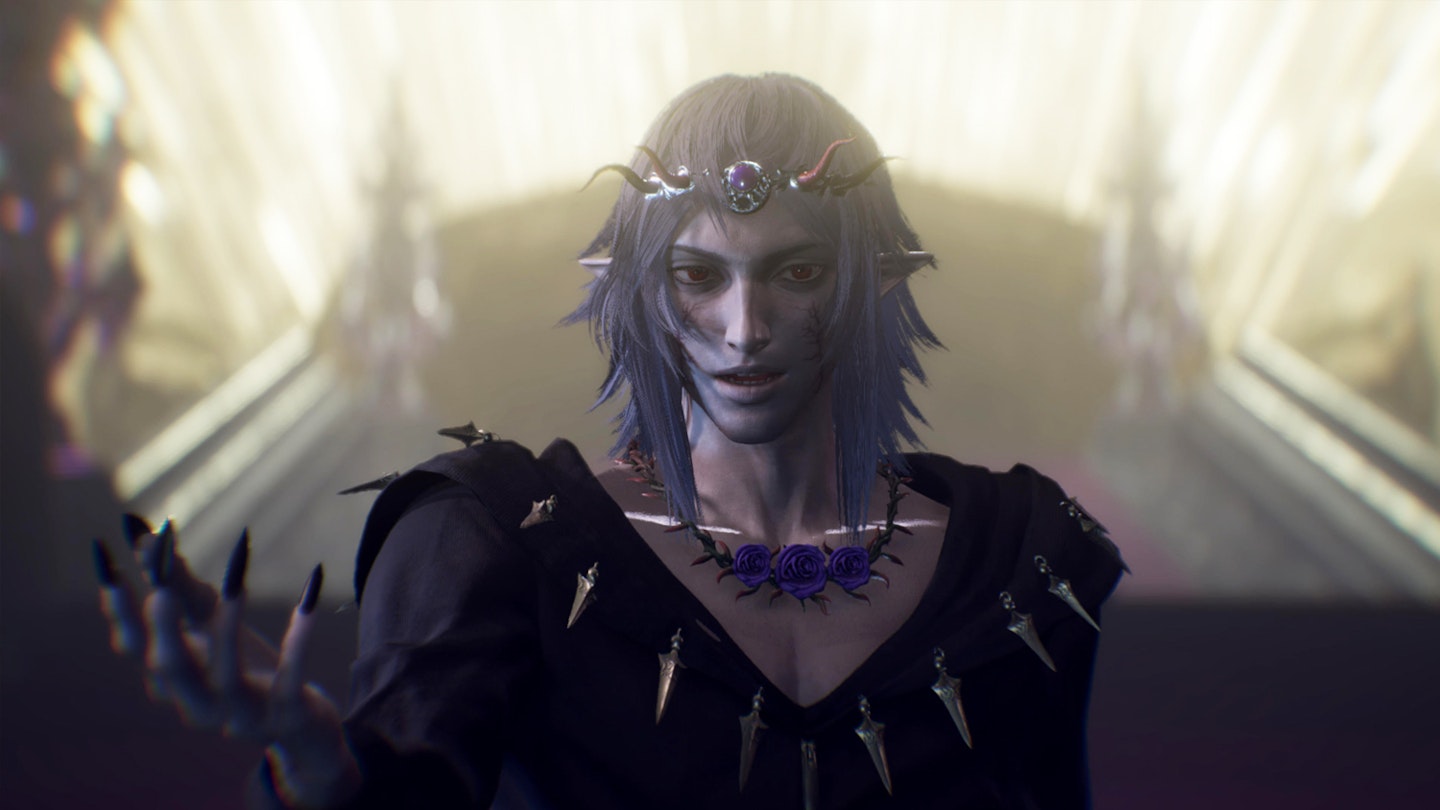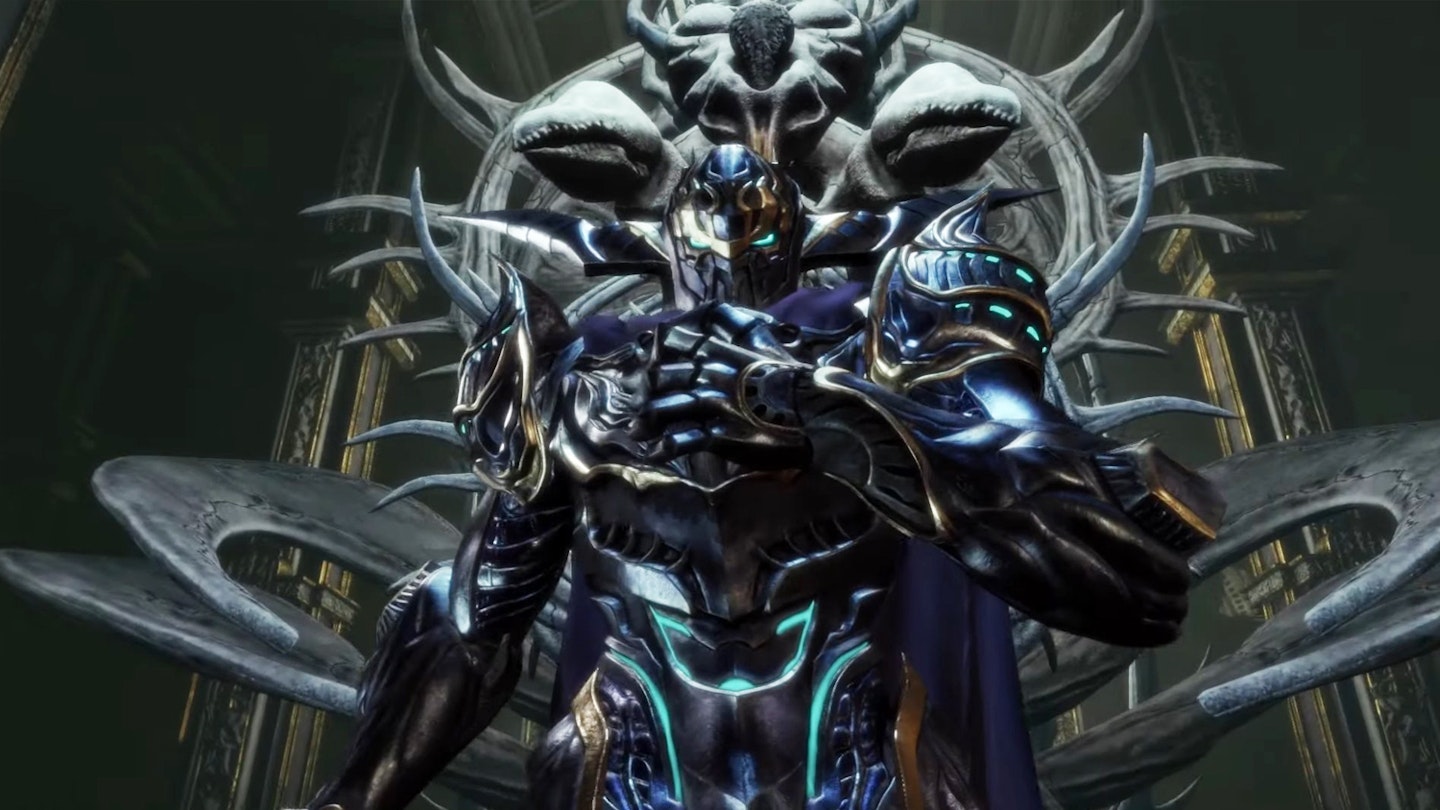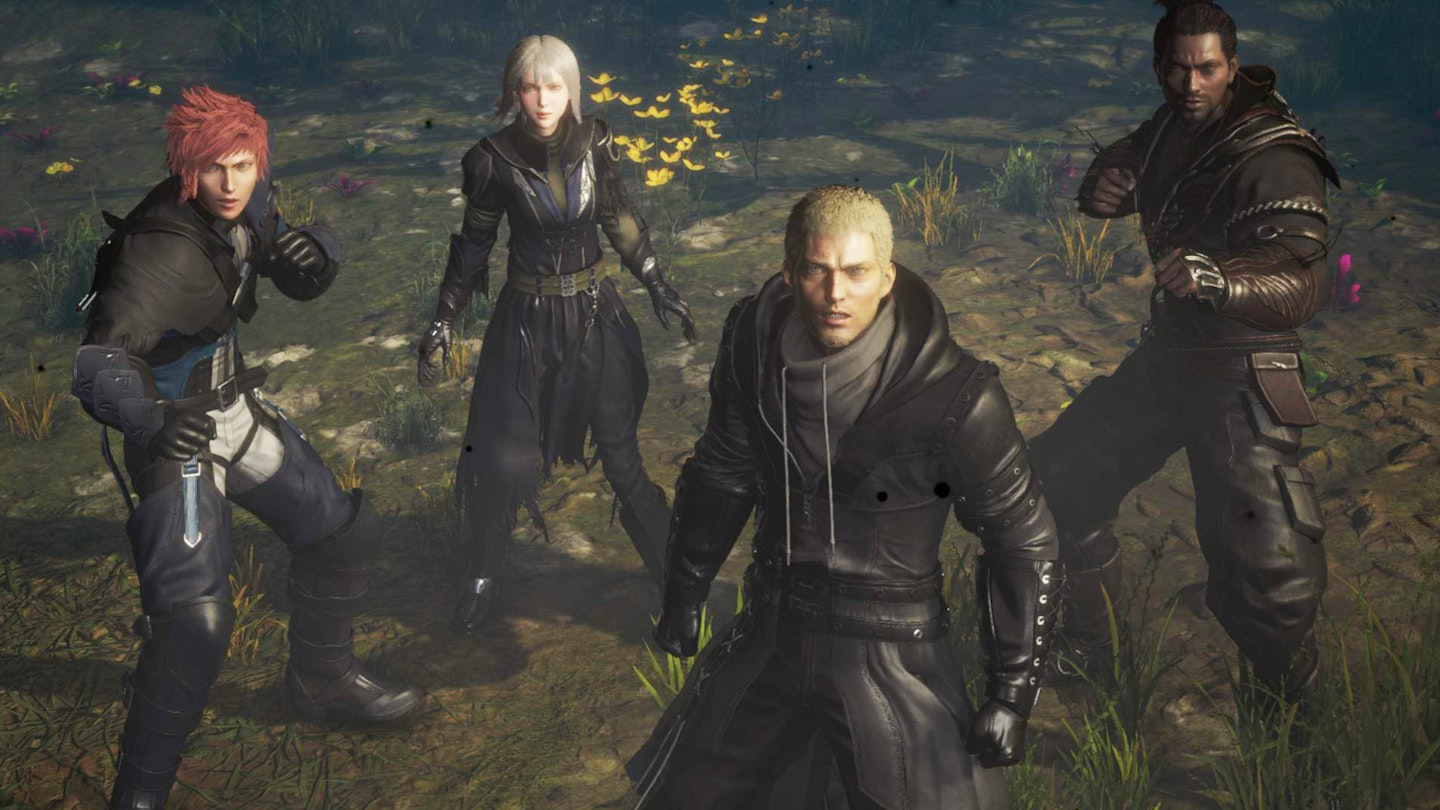Formats: PS5, PS4, XBX, XB1, PC
The Final Fantasy series is known for presenting players with some wild ideas over the last three decades, but there's never been an entry in the series that's as bizarre as Stranger of Paradise. Within minutes of starting, players are bounced between a surprisingly gory opening movie, an inexplicable battle against regular FF boss beastie Tiamat, and Frank Sinatra's "My Way" being belted out over a cornfield. It only gets weirder when the protagonist Jack is introduced – a snarling, brooding wanderer whose dialogue mainly consists of variations on how much he wants to kill the game's nemesis Chaos – and his mates Jed and Ash, all of whom live in a classical fantasy world but initially dress like 1980s New York construction workers. It's all incredibly bonkers, over-the-top, and so wilfully cheesy that it's hard not to immediately love it.
Although ostensibly a remake of 1987's Final Fantasy, Stranger of Paradise only uses the original as a loose template. Unlike Final Fantasy VII Remake, which delicately expanded on hidden details of its source material, this is a game that follows the broad pattern of events of its inspiration, all while ricocheting between tones, styles, and bizarre personalities with almost reckless abandon.

In fairness, there's a lot to expand on from the original. The NES classic may have launched an internationally renowned franchise, but it was threadbare on details, with no named playable characters and simplistic progression. Even if they're ridiculously exaggerated, Jack, Ash, and Jed – and later teammates Neon and Sophia – at least add some defined personalities to the proceedings. Similarly, the story was threadbare, with four "Warriors of Light" charged with relighting elemental crystals and defeating Chaos – plenty of room to flesh things out there.
Stranger of Paradise removes one of the central elements of world building in a Final Fantasy game – the ability to wander towns and speak to locals.
Unfortunately, the story remains similarly basic here, despite frequent fully voiced cutscenes. Some events even happen 'off camera', such as an early mention that Jack, Jed, and Ash were sent to kill infamous monsters to prove their worth to challenge Chaos – an event players would likely have rather experienced than merely be told about. Worse, Stranger of Paradise removes one of the central elements of world building in a Final Fantasy game – the ability to wander towns and speak to locals. The closest is being able to sometimes select to talk to characters from a menu on the world map, which feels bland, detached, and largely pointless. It removes any real sense of stake or investment in the very world you're supposed to be trying to save. Although there's a nice touch in having several mission locations based on areas from past Final Fantasy games, there's not even a world to explore in the traditional sense, only a selection of missions to choose from on a bland world map.

Instead, everything feels stripped back in service of Stranger of Paradise’s identity, not as an RPG, but rather as an action game. Developed by Team Ninja – best known for Ninja Gaiden and Nioh – the emphasis is on rapid real-time combat, with multiple weapon types to use and increasingly complex combos to master for each. Players primarily control Jack, with two other party members on AI support (or controlled by allies in multiplayer), and each encounter is a flurry of blows, blocks, and evasions, with clever tricks that allow the skilful absorption and redirection of enemy abilities. Depleting an enemy's break gauge before their health is at zero also allows Jack to perform grisly finishing moves, converting them to crystal before tearing them to shards.
It's striving to be grittier and more mature than the franchise is typically known for, but pursues that goal so hard it comes out the other side as almost a parody.
One of the best adaptations from the original Final Fantasy is the presence of an expanded Job System, allowing characters to specialise in different roles drawn from the series' lore. A basic six are available to start with, and Jack will be able to switch between two active jobs at any point. Not only does this allow players to tackle a mission with a pair of specialisations for different enemy types, but certain combos will allow chaining attacks between jobs.
Jobs also offer a twist on traditional levelling up mechanics. Rather than each character earning experience directly, they earn it for their current job, accruing "Job Points" to unlock abilities unique to that role. Stack enough points into one job tree, and you'll unlock advanced and expert roles – for instance, the Mage can be expanded to Black Mage, Red Mage, and White Mage. Some advanced jobs require maxing out multiple lower tier Jobs too, which is a further incentive to keep switching things up in battle.
However, while the combat is smooth, combos for more advanced moves are often fiddly, with no clear distinction between tapping or holding a button as part of an attack chain, or inputting a direction command mid-flow. Similarly, the laudable flexibility of the Job System also means that, in practice, you're likely to find a role that feels comfortable to play as, then stick with it. Visuals are also oddly lacking, particularly in cutscenes, with objects and textures appearing heavily pixellated in places.
As a pure action game, Stranger of Paradise is solid, if not exceptional – and likely to suffer in the proximity of its release to Elden Ring – but will still entertain fans of the genre. Unsurprisingly, it's Final Fantasy junkies who will likely love this most, in large part simply for how utterly weird it all is. It's striving to be grittier and more mature than the franchise is typically known for, but pursues that goal so hard it comes out the other side as almost a parody. The result was surely unintended, but is still a delight, making this feel like a guilty pleasure.
